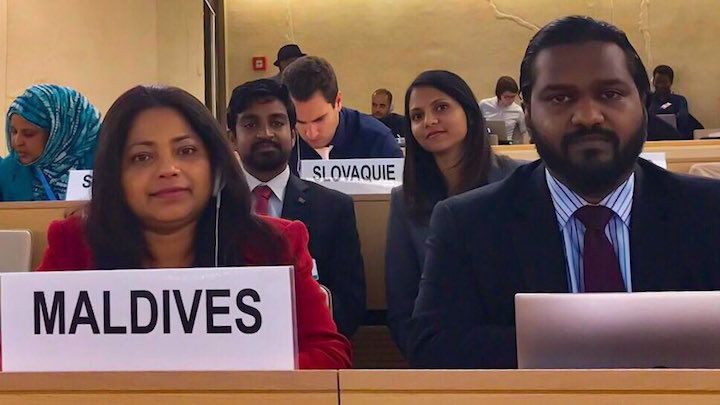Maldives decries UN human rights chief’s criticism over crackdown on dissent
In his opening statement Monday at the UN Human Rights Council’s 36th session in Geneva, Zeid Ra’ad al-Hussain said the Maldivian government was “increasingly cracking down on critical views” and expressed concern about “reports of continued violations of the right to a fair trial, and allegations of political bias by the judiciary and law enforcement authorities.”

13 Sep 2017, 09:00
The Maldives has urged the UN high commissioner for human rights to “present a more balanced view of the democratic reality of the country” after strong criticism over the reversal of democratic gains.
In his opening statement Monday at the UN Human Rights Council’s 36th session, Zeid Ra’ad al-Hussain said the Maldivian government was “increasingly cracking down on critical views” and expressed concern about “reports of continued violations of the right to a fair trial and allegations of political bias by the judiciary and law enforcement authorities.”
He observed that “trust in government institutions is breaking down” and called on the authorities to allow the exercise of fundamental rights and “to respect the people’s right to an independent and impartial judiciary.”
Responding during the general debate at the council Tuesday, Dr Hala Hameed, the Maldives’ permanent representative to the UN in Geneva, dismissed the criticism as “inaccurate” and unfounded.
Become a member
Get full access to our archive and personalise your experience.
Already a member?
Discussion
No comments yet. Be the first to share your thoughts!
No comments yet. Be the first to join the conversation!
Join the Conversation
Sign in to share your thoughts under an alias and take part in the discussion. Independent journalism thrives on open, respectful debate — your voice matters.




